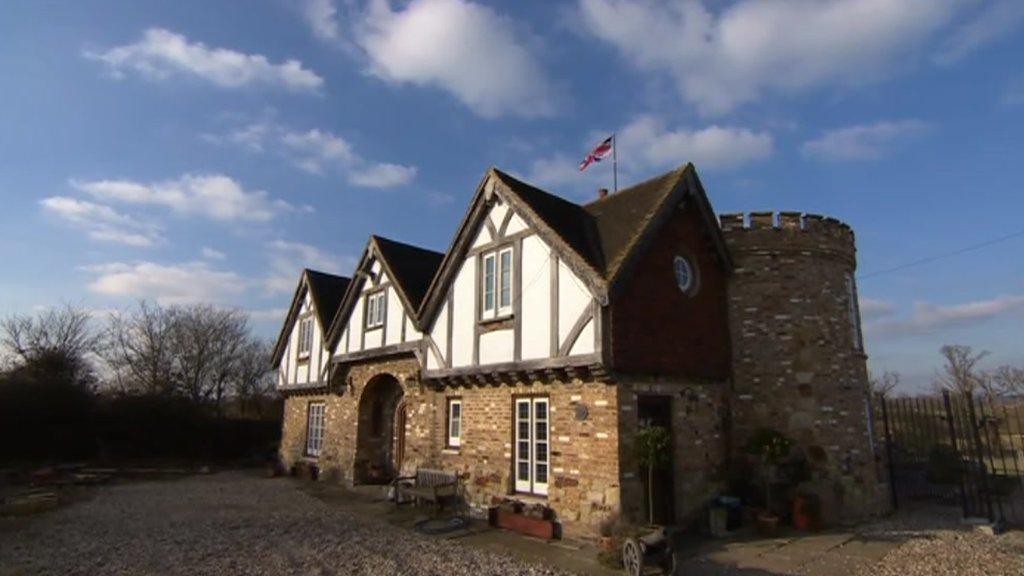Timeline: Farmer's 'hidden castle' battle
- Published
A farmer who built a mock-Tudor castle without planning permission has been found in contempt of court after failing to knock it down.
Robert Fidler, from Salfords, in Surrey, has managed to prevent the destruction of his house since it was revealed in 2006.
He has received a three-month suspended sentence and has been ordered to knock it down by 6 June 2016.
BBC News looks back at how the story has developed.

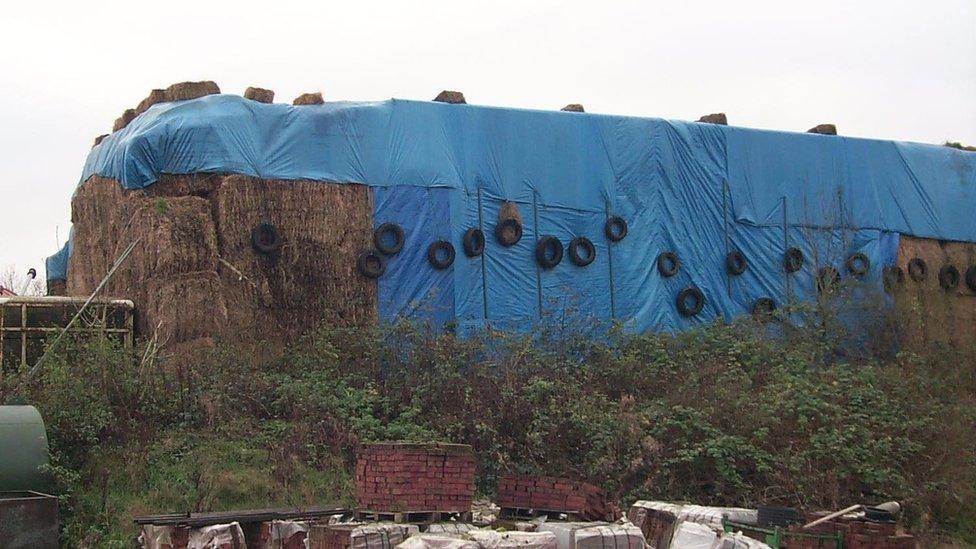
Pre-2006: Hay bales
In secret and hidden behind hay bales, Mr Fidler built his new home some time between 1999 and 2006.
It was not spotted when planning officers visited the farm on a separate issue in 2002, inadvertently taking a picture of the hay bales (above), but not noticing the "castle".

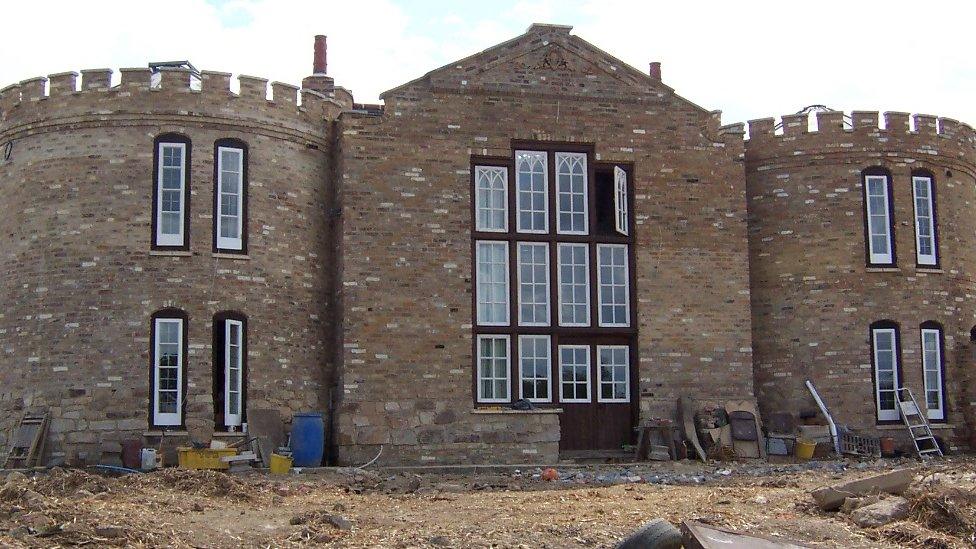
2006: The castle is revealed
The hay bales were removed and Mr Fidler presented his castle - complete with ramparts - to the world.
Built in secret and with no planning permission, he claimed it was immune from enforcement action due to the "four-year rule".
This is a planning law which allows a building to become lawful if it has been complete for four years.

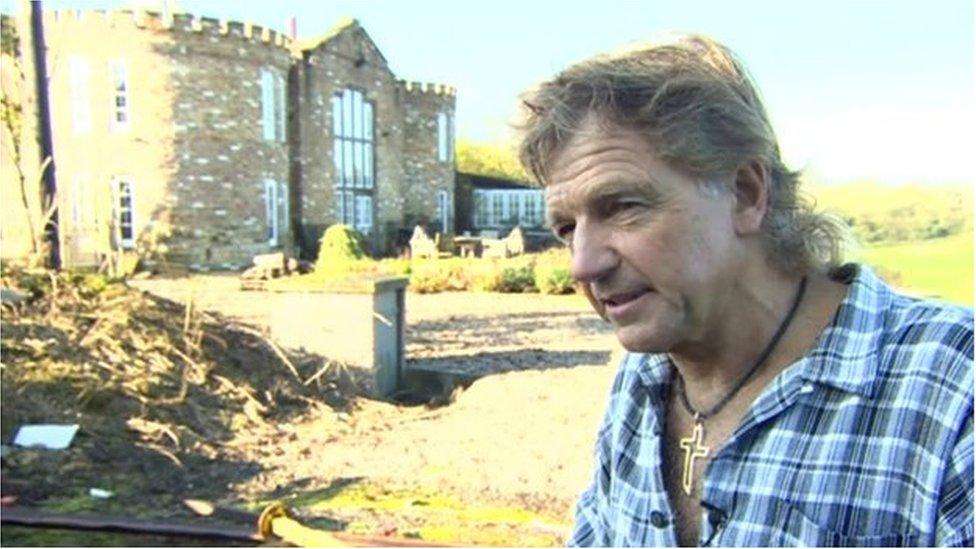
2007: The backlash
Fearing it had no choice, Reigate and Banstead Borough Council served an enforcement notice requiring the house to be demolished.
The authority said the home was built on the metropolitan green belt and was contrary to national and regional planning policies.
Mr Fidler claimed he started building the structure when the council did not answer his planning application within two months.

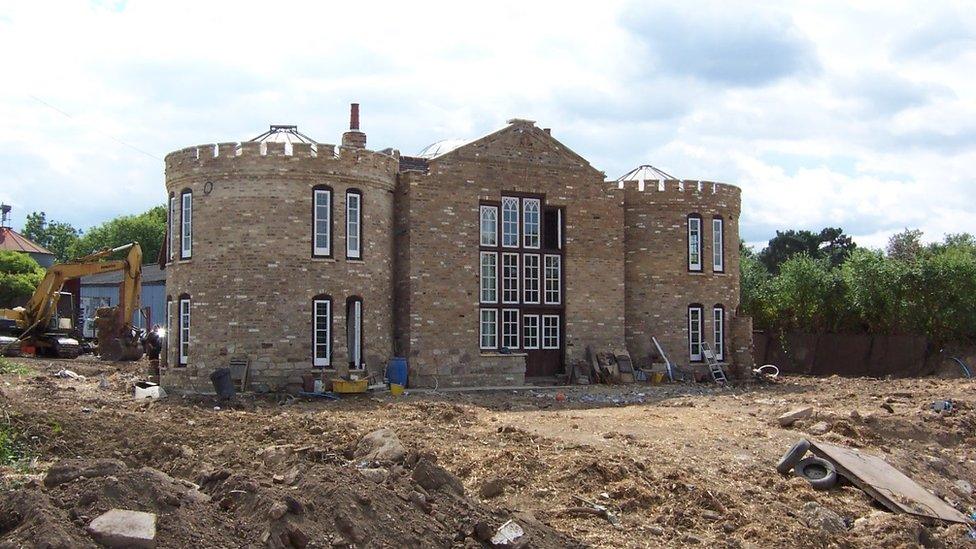
2008: The appeal
Mr Fidler took his case to the Planning Inspectorate and appealed against the decision, external.
He said: "There are two ways of getting planning permission, you either apply for it, which I did and they refused to process my planning application, so I took the alternative.
"If I build the house and they don't see it for four years then it becomes legal and that's the way I went about it."
However, the inspector dismissed his case saying the removal of the hay bales was an integral part of the building operations, therefore the house was not finished until the bales were removed.
In the meantime, Mr Fidler built a go-kart track, a lake, bridge and a "marquee structure" - all without planning permission.

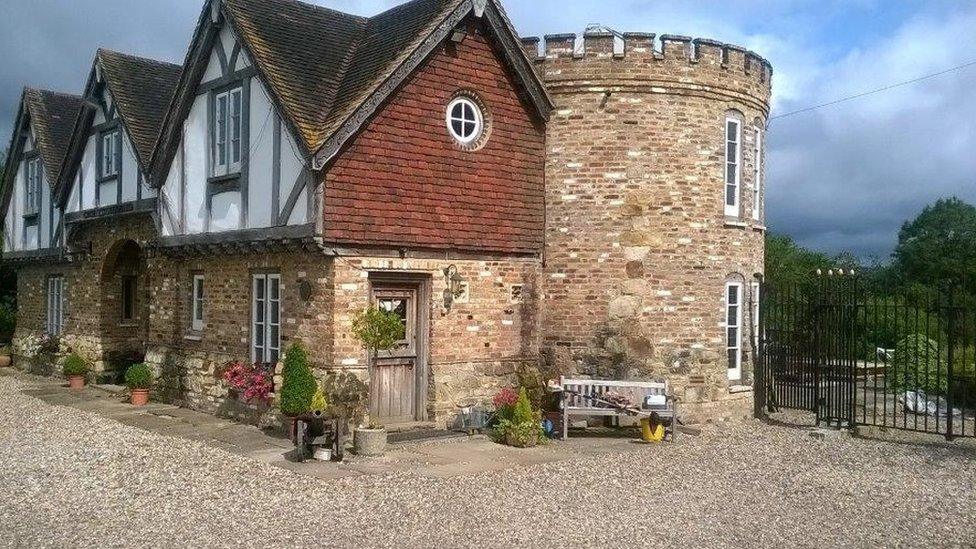
2009-2014: 'Paradigm of deception'
A series of court battles followed, with Mr Fidler first taking his case to the High Court.
The judge dismissed his case, backing the council's decision.
He then went to the Court of Appeal. Again the council's decision was supported, while Mr Fidler's actions were described as a "paradigm of deception".
Events slowed as Mr Fiddler submitted several different planning applications to the council.

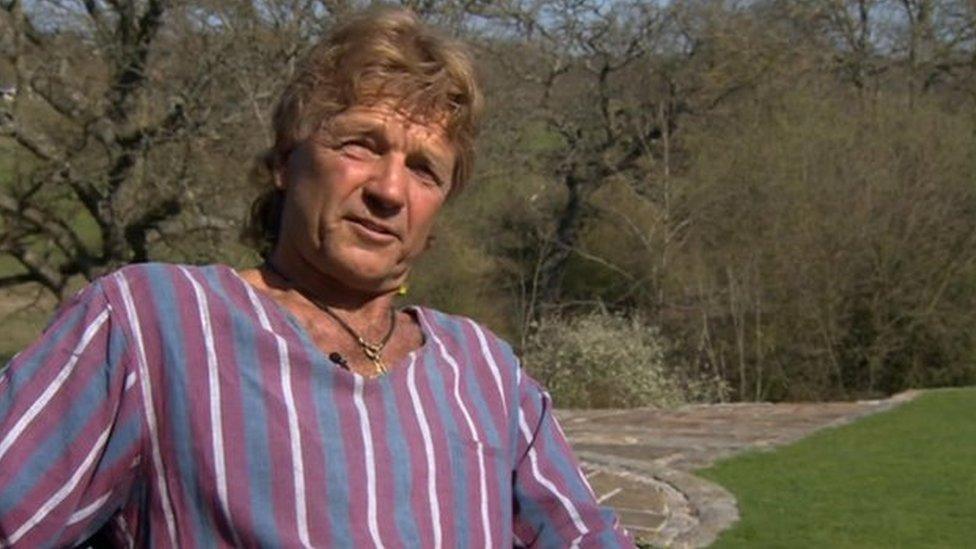
2014: Injunction
In June 2014 the council obtained a High Court injunction requiring Mr Fidler to comply with four outstanding enforcement notices.
The court gives Mr Fidler 90 days to demolish the castle.

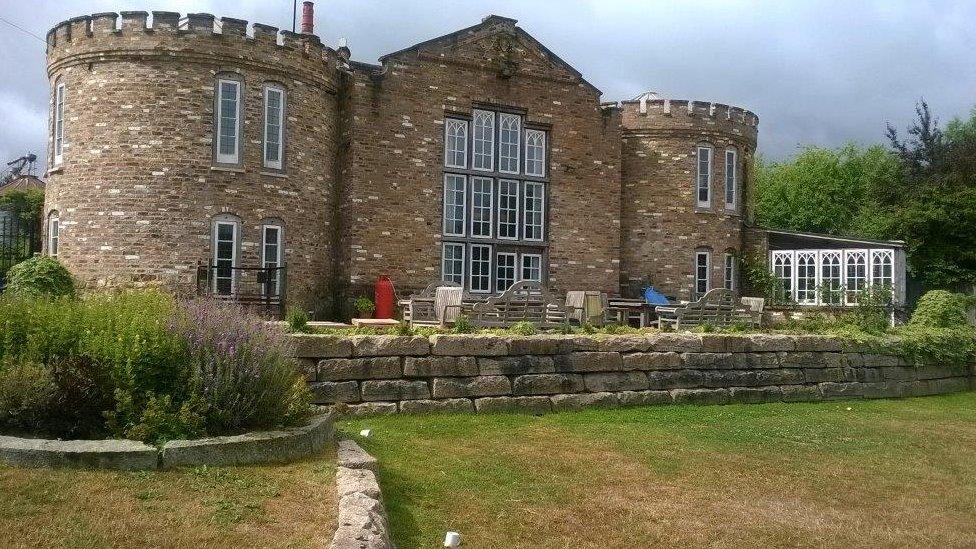
2015: Contempt of Court
In August the council lodged an application for a contempt of court hearing to take place after Mr Fidler failed to knock his home down.
The hearing date was set for 22 October, however, Mr Fidler failed to appear at court. The judge issued a warrant for his arrest and the hearing was rescheduled for 2 November.
Mr Fidler then arrived at court, claiming he missed the case believing it to be held later that day.
The hearing was rescheduled and on 9 November Mr Fidler was found in contempt of court.
He was given a three-month suspended sentence and ordered to knock his home down by 6 June 2016.
- Published26 August 2015
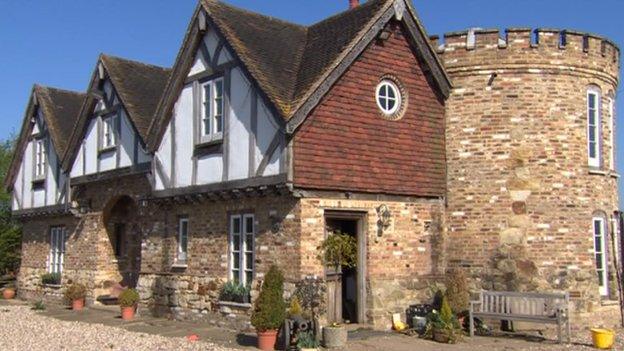
- Published26 June 2015

- Published16 April 2015

- Published4 November 2014
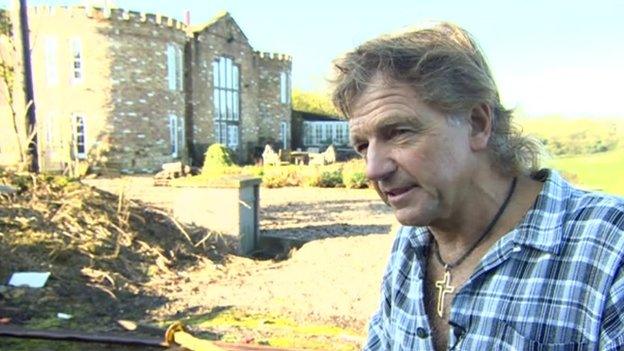
- Published5 November 2014
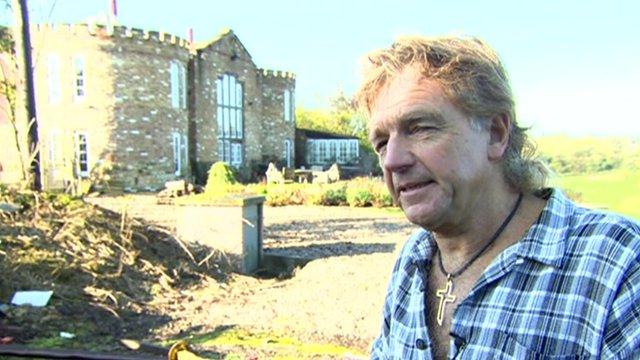
- Published21 February 2013
